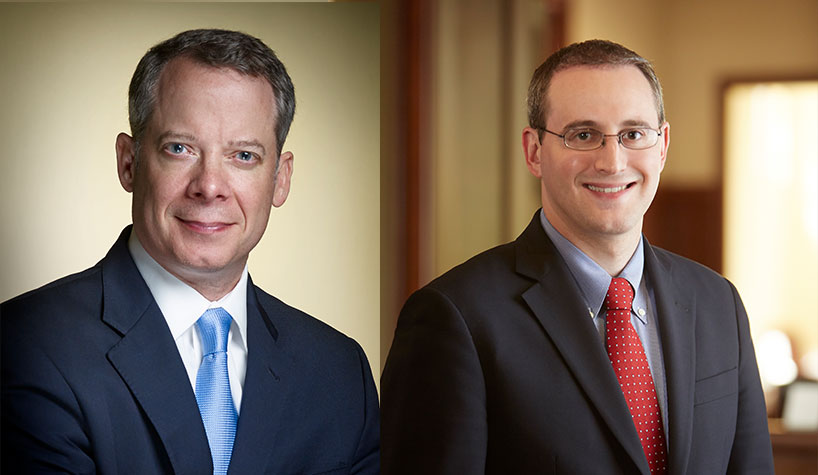NATIONAL REPORT—Go to any lodging conference and you’ll likely here a common question posed as hoteliers discuss and take the pulse of the industry: What inning are we in? The answer depends on whom you ask—doomsayers, optimists or somewhere in between. But first, you need to know where you’ve been in order to know where you’re going.
A quick search of HotelBusiness.com reveals a popular word among hoteliers: optimism. Many industry players are feeling confident about the hospitality segment. The economy is a key indicator. A PwC survey of nearly 1,300 CEOs all over the globe revealed 57% of respondents believe global economic growth will improve.
What else is fueling this optimism, and where is the industry headed? Hotel Business tapped the minds of two hospitality experts—Monty Bennett, chairman and CEO of Ashford Inc., and Charles Snyder, VP of business development at Charlestowne Hotels—to share their insights into the lodging landscape.
How do you think the industry closed out 2017, and were there any lessons learned that could carry over into 2018?
Bennett: Overall, it was a solid year for the hospitality industry, but with some growing momentum going into 2018. Last year marked the ninth consecutive year of growth, which makes some assume that we are at the end of the cycle. I believe the reality is that because of the depth and length of the last financial crisis, it is likely that this hotel upcycle will continue for longer than most industry prognosticators believe.
Also in 2017, the industry saw a handful of mergers like the Marriott-Starwood deal, with the rationale for the transactions primarily based on the investment thesis that scale matters in our industry. I definitely believe that to be the case, which makes me believe we should continue to see some merger and acquisition activity this year.
Another trend was the enormous efforts the hotel sector made to enhance the guest experience via technology, as well as health and wellness. Both were strategic areas of focus for Ashford in 2017 and will continue to be a focus this year.
In the health and wellness space, we acquired Pure Rooms, a company that provides allergy-free hotel rooms. The response from guests with these Pure Rooms is just phenomenal. We also saw significant growth in one of our original investments, OpenKey, which is a mobile technology company that offers guests keyless entry to their rooms via their smartphones, as well as remote check-in and other services, which can all be tailored to fit the customer experience.
Snyder: 2017 was a year of slowing growth, which is still better than the alternative. Rate growth was lower than expected nationally, but the year ended with some optimism due to tax reform. When you drill down, we find there are some markets that softened while others, particularly mid-tier markets, continued to thrive.
What’s your overall forecast for 2018? What should the industry watch for in the coming months?
Bennett: I expect 2018 to be even better than 2017 for the economy and the hotel industry. Demand has been reaccelerating over the past year, albeit slightly, and I am hopeful that strong economic numbers and the recently passed tax bill will push consumer and corporate spending even higher. If the industry continues to have supply growth around 2%, I believe that we can potentially have RevPAR growth push higher than it did in 2017.
Snyder: Reports are projecting continued modest growth of the industry, given that supply growth has overtaken demand growth in many urban areas and ADR growth is lackluster. One concern we see is that labor costs may grow at a faster pace than revenues in many areas. This puts significant pressure on profitability for owners. On the bright side, U.S., consumer confidence is at an all-time high with low unemployment, solid jobs growth and good fundamentals overall.
Do you think tax reform will result in positive returns for the hospitality industry?
Bennett: In 2018, I believe the industry should watch for the positive impacts coming out of the 2017 tax bill. I believe the new legislation will boost the U.S. economy for years to come by increasing domestic investment, fueling more jobs with higher wages and increasing Americans’ standard of living.
Since more consumers will have more cash to spend, we believe this will positively impact the travel and hospitality industries in 2018, whether it is an increase in family vacations or companies investing in employees to travel and network.
Snyder: We certainly hope so. In theory, we should see companies with significantly more cash in their pocket at the end of the day. Some of this may make its way into increased meeting and travel budgets, which would offer a more immediate impact to our industry. Other funds will be invested in capital projects that benefit markets over the long term. Hotels with large corporate accounts or that cater to corporate meetings will certainly be taking this into account when revisiting their 2018 budgets.
What are some initial thoughts about 2019? Will the optimism continue?
Bennett: Depending on the Fed and potential 2018 rate hikes, I expect the U.S. economy will continue to be in good standing for years to come thanks to the growing economy, low unemployment numbers and the tax bill. If President Trump continues to focus on improving the overall business environment, there is no telling how long this recovery might continue.
Snyder: It’s all good until it isn’t. This is where finance folks would invoke disclaimers about black swan events. The one thing that seems certain is that when owners can’t confidently project a five-year time horizon we all refocus our efforts on sound underwriting and buying or developing unique assets that have long-term intrinsic value. That’s where we make the most impact with our partners.

